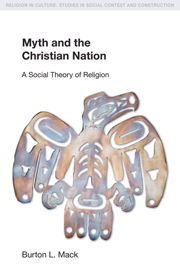Book contents
- Frontmatter
- Contents
- Dedication
- Preface
- Introduction
- Part I The Religions of Other Peoples
- Part II The Religion of Christianity
- Chapter 5 Early Christian Mythmaking
- Chapter 6 The Social Formation of Christendom
- Chapter 7 The State of the Christian Nation
- Chapter 8 Religions in a Polycultural World
- Conclusion
- Bibliography
- Index
Chapter 8 - Religions in a Polycultural World
from Part II - The Religion of Christianity
- Frontmatter
- Contents
- Dedication
- Preface
- Introduction
- Part I The Religions of Other Peoples
- Part II The Religion of Christianity
- Chapter 5 Early Christian Mythmaking
- Chapter 6 The Social Formation of Christendom
- Chapter 7 The State of the Christian Nation
- Chapter 8 Religions in a Polycultural World
- Conclusion
- Bibliography
- Index
Summary
The concept of a “Christian nation” registers a problem for thinking about the social situation in which we find ourselves in the United States in the first decades of the twenty-first century. The designation is a misnomer, and the concept does not provide a program for a constructive engagement with the social issues facing us. The mythic world of Christianity imagines society on the model of a kingdom in which the Christian church is the only religion. Conservative Christians may have coined the term “Christian nation” with this model in mind. The history of the nation reveals the extent to which Christians and others have assumed the dominant influence of Christianity to indicate that the United States was a Christian nation. However, the history has shown the degree to which other concepts and social interests reveal structures and practices that are not rooted in the Christian's imagined world. During the last half of the twentieth century the disparity between the assumption of a Christian nation and the reality of our situation as a nation state rooted in other interests and views became obvious. It was then that conservative Christians sought to shore up the moral values they imagined definitive for Christianity and for a Christian nation. The result was a remarkable violation of the principle of the separation of church and state.
- Type
- Chapter
- Information
- Myth and the Christian NationA Social Theory of Religion, pp. 249 - 270Publisher: Acumen PublishingPrint publication year: 2008

